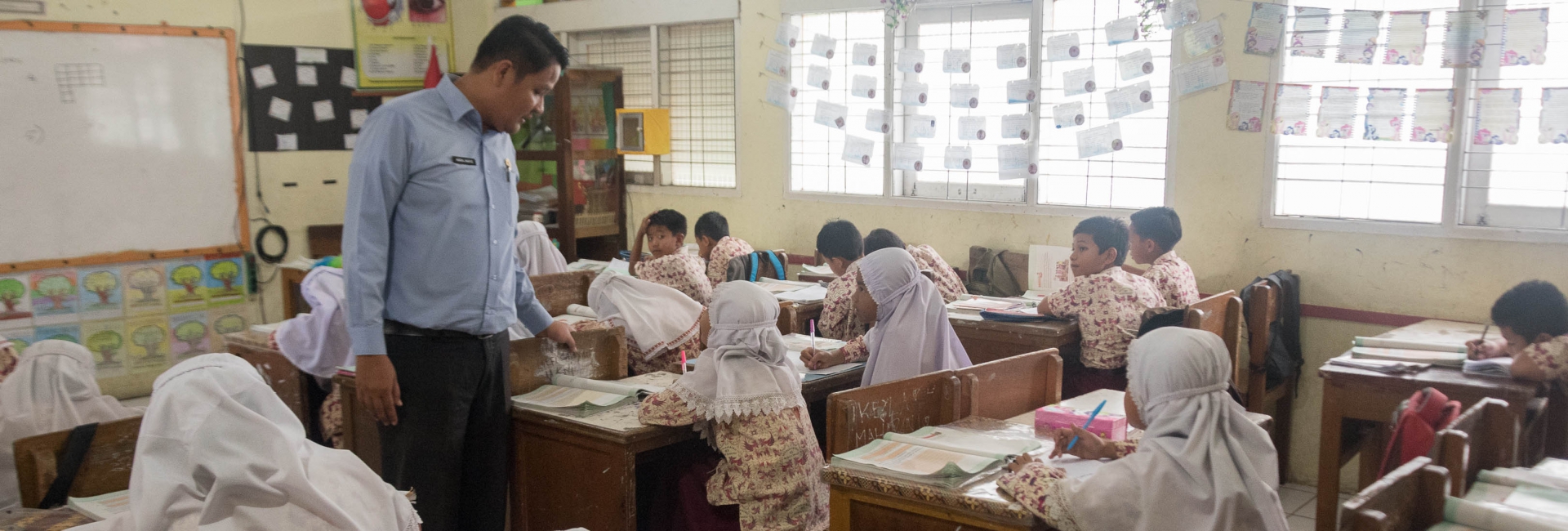This study is part of RISE Programme in Indonesia, a large scale, multi-country research program that seeks to understand how school systems in the developing world can overcome the learning crisis and deliver better learning for all. The study is one of the components in the Reform Area A that evaluates policies of pilot programs related to teachers and teaching, especially on improving student learning outcomes.
In 2014, the Ministry of Education and Culture established an online platform for a teacher training program called Guru Pembelajar (teachers as learners). In 2017, it was transformed into teachers’ Continuing Professional Development (PKB).
To meet the mapping of teachers’ professional and pedagogical competencies, all in-service teachers in Indonesia are obligated to take the teacher competence test (UKG). Afterwards, teachers will undergo the PKB program using modules selected based on the results of their UKG scores. The government sees PKB as their major attempt to improve in-service teachers’ competence both in teaching and knowledge of teaching content.
1. To identify the role of PKB program in improving teachers’ knowledge and teaching practices;
2. To determine supporting and inhibiting factors in the implementation of PKB program
We employed a combination of qualitative methods to gain information on the design and implementation of the PKB program, with a focus on the training for primary school teachers. We collected data using several techniques: in-depth interviews, group discussions, focus group discussions (FGD), observations in student classrooms, and analyses of PKB’s in-service training sessions.
Publications
- "Systemic Constraints Facing Teacher Professional Development in a Middle-Income Country: Indonesia’s Experience Over Four Decades" Working Paper
- "Research Findings on Functional Training in PKB" Infographic
- "Teacher Professional Development in Indonesia: Technical and Systemic Constraints" Infographic
- "Four Decades of Teacher Professional Development in Indonesia: One Step Forward, Two Steps Back" Blog Post





